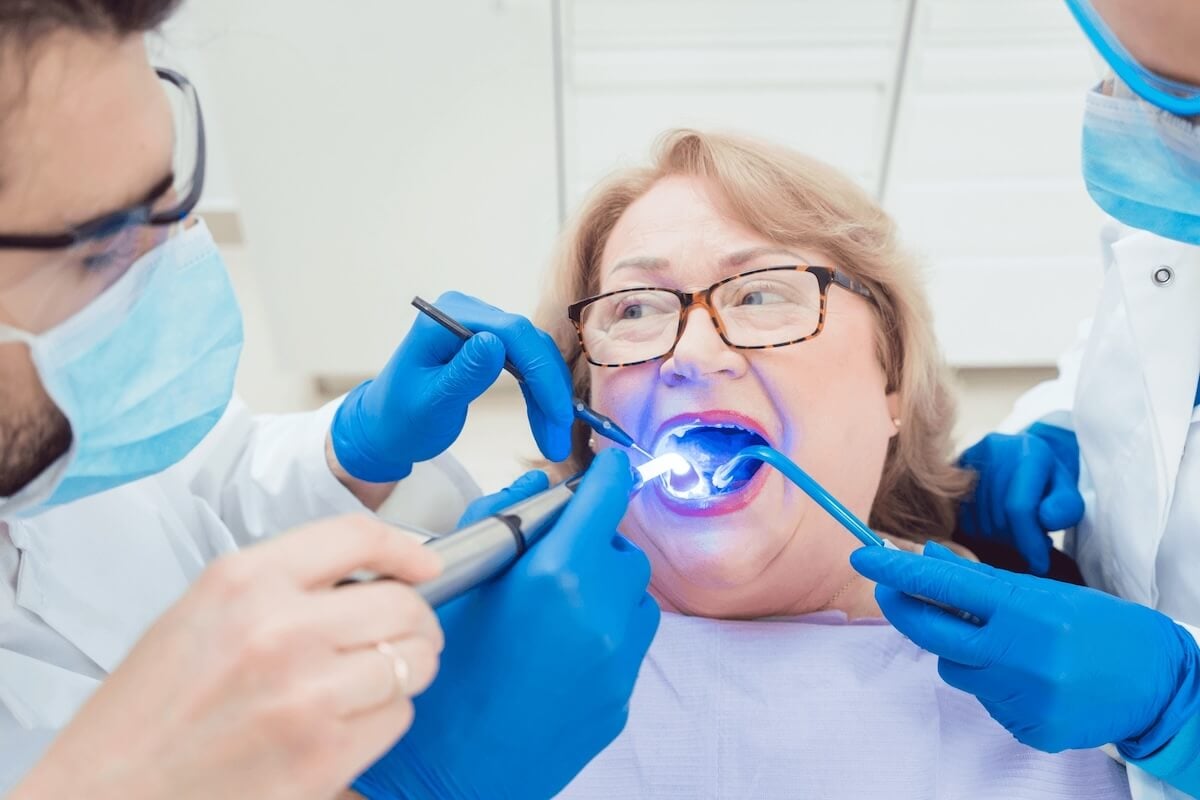A dental crown is often the solution to restoring a tooth that has decayed or broken, and is a tooth-shaped cap made from durable metal, resin, or porcelain. They are often used to cover dental implants and teeth that have undergone a root canal. Dental crowns ensure your smile isn’t compromised from tooth damage or decay and can last up to 15 years. However, the lifespan of a dental crown is much shorter if proper care is not taken. Following are 5 tips for caring for your dental crown to ensure it lasts as long as possible and helps you maintain optimal oral health.
Keep Up With Brushing and Flossing
While your crown is technically artificial, it still requires care since the supporting tooth underneath needs to stay as healthy as possible. This means proper brushing to keep the crown free of plaque, as well as regular flossing since food particles are easily trapped between the crown and your gumline or a neighboring tooth. Since a permanent crown is strongly adhered with dental cement, you can brush and floss around it without worrying about damage.
Say No to Sticky and Hard Foods
After receiving a dental implant, your choice of foods may need to change — especially if you love chewy or hard candy. While crowns are known for their durability, they’re not immune to damage if you’re constantly reaching for sticky and hard foods such as hard candies, gum, lollipops, chips, or nuts. Over time, those foods can weaken or loosen dental crowns, leading to the need to replace them far sooner than their 15-year lifespan. In addition, it’s best to avoid sugary treats even if they’re not sticky or hard. Sugar promotes the growth of cavity-causing bacteria, which can lead to decay around your dental crown. When you do treat yourself to a sugary treat, be sure to brush and floss soon afterward to remove any leftover sugar.
Eliminate Those Bad Habits
Are you a nail-biter? Chew on the end of your pencil? Use your teeth to rip open packages? If so, those habits may jeopardize the longevity of your dental crown. Those actions can lead to crown breakage and, even worse, chip your natural teeth, leading to the need for another crown. While those bad habits were never good for your teeth through the years, after a dental crown, it’s time to stop using your teeth for anything except chewing.
Consider a Night Guard
If you have a history of grinding or clenching your teeth while you sleep, you risk damaging your dental crown. Regular biting while eating exerts approximately 200 pounds of pressure on your teeth — which means that grinding or clenching can increase that pressure tenfold. This puts any dental crown at risk of breaking. Inquire with your dentist about a possible grinding problem, which they can usually detect with a visual inspection of your teeth. If there are any signs, they can have you fitted for a night guard, which will curb that tendency and protect your dental guard from inadvertent damage.
Have Your Crown Checked Regularly
Having a dental crown makes it even more imperative that you visit your dentist every six months. During these routine cleanings and exams, your dentist will inspect your crown to ensure it's still properly seated and not damaged. They will also make sure the surrounding gums and teeth are in good condition to continue supporting your crown.
If you have any questions about caring for a dental crown and what to avoid to ensure this replacement tooth lasts as long as possible, contact us.

